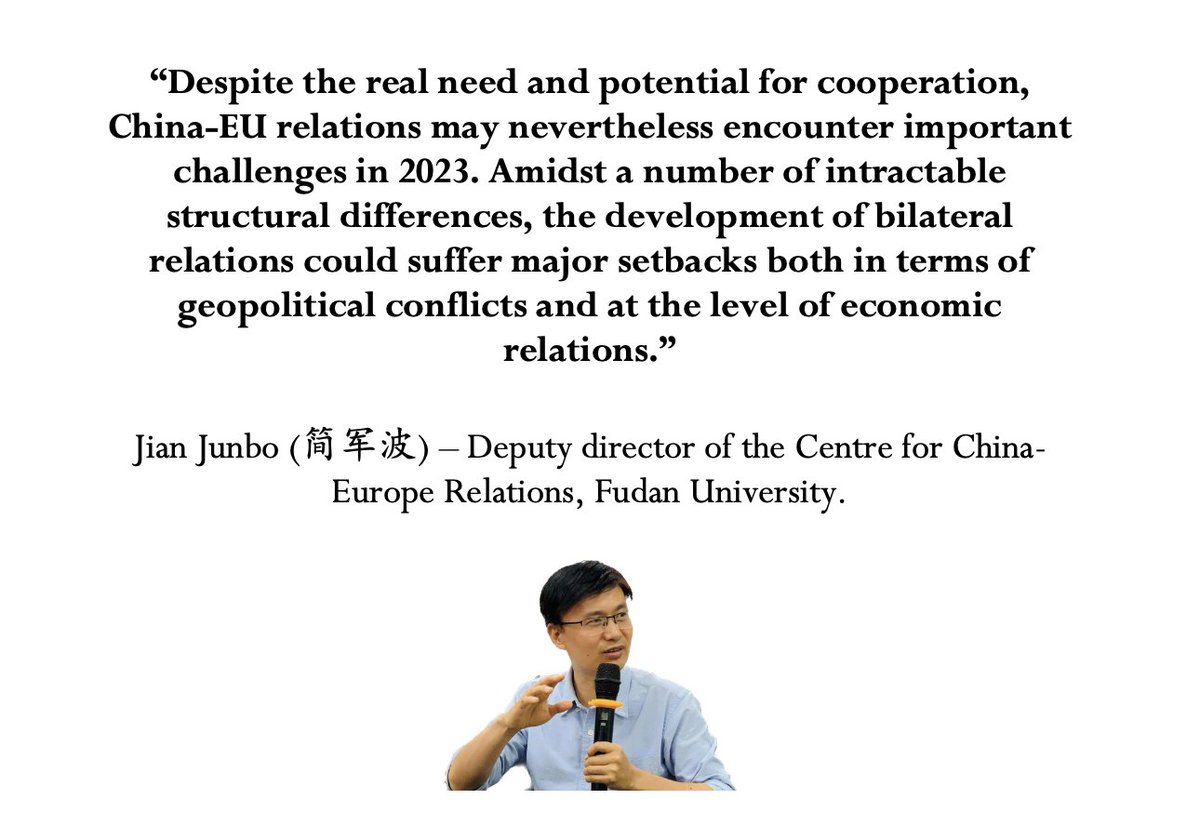#Brazil’s president Lula will be travelling to #China this week and meeting Xi Jinping on Friday.
Why does Lula’s Brazil matter to China? And what are Chinese experts recommending Beijing do in order to strengthen its ties with Brasilia?
THREAD 🧵
sinification.com/p/what-china-e…
Why does Lula’s Brazil matter to China? And what are Chinese experts recommending Beijing do in order to strengthen its ties with Brasilia?
THREAD 🧵
sinification.com/p/what-china-e…
🔹Authors:
▫️ 7 researchers from the Institute of Latin American Studies, which is part of the prestigious Chinese Academy of Social Sciences (CASS).
▫️ Lead auhtor: Zhou Zhiwei (周志伟) – Director of the Centre for Brazilian Studies, Chinese Academy of Social Sciences (CASS).
▫️ 7 researchers from the Institute of Latin American Studies, which is part of the prestigious Chinese Academy of Social Sciences (CASS).
▫️ Lead auhtor: Zhou Zhiwei (周志伟) – Director of the Centre for Brazilian Studies, Chinese Academy of Social Sciences (CASS).

🔹Summary:
1⃣ Lula’s Brazil is seen as having fundamental political differences with the #UnitedStates.
2⃣ Under Lula, Brazil's diplomatic focus is expected to be reoriented towards the #GlobalSouth and, most importantly, away from the US.
1⃣ Lula’s Brazil is seen as having fundamental political differences with the #UnitedStates.
2⃣ Under Lula, Brazil's diplomatic focus is expected to be reoriented towards the #GlobalSouth and, most importantly, away from the US.
3⃣ Furthermore, #Brazil's interests, "de-emphasis of ideology” and approach to global issues are said to be often aligned with 🇨🇳.
4⃣ 🇧🇷 is viewed as an important partner in promoting globalisation, reforming the current international order and bringing about a multipolar world.
4⃣ 🇧🇷 is viewed as an important partner in promoting globalisation, reforming the current international order and bringing about a multipolar world.
5⃣ Beijing should therefore strive to “win” #Brasilia over as a reliable partner and “support it” in opposing “hegemonism and foreign power politics” (i.e. in opposing the #USA).
6⃣ Beijing should support Brazil’s desire to play a greater role in global affairs.
6⃣ Beijing should support Brazil’s desire to play a greater role in global affairs.
7⃣ Beijing should convince an already #BRI-friendly Lula to “participate in” (understand “sign up to”) the Belt and Road Initiative.
8⃣ The #BRICS should of course remain an important platform for China-Brazil and South-South cooperation.
8⃣ The #BRICS should of course remain an important platform for China-Brazil and South-South cooperation.
9⃣ The development of economic cooperation will continue to be “the key factor determining #LatinAmerica's attitude towards China”. In this respect, China is shown to be at an advantage when compared with the US.
🔟 #Beijing should also provide “unequivocal support” for Latin American integration, strategic autonomy and “self-strengthening”.
🪧 Quote: "Especially in the context of escalating competition between major powers, Brazil should become a partner that China actively strives to win over."
📣 To receive weekly insights from Chinese think-tank and academic circles on a range of international topics, you can subscribe here:
sinification.com
sinification.com
• • •
Missing some Tweet in this thread? You can try to
force a refresh

 Read on Twitter
Read on Twitter










